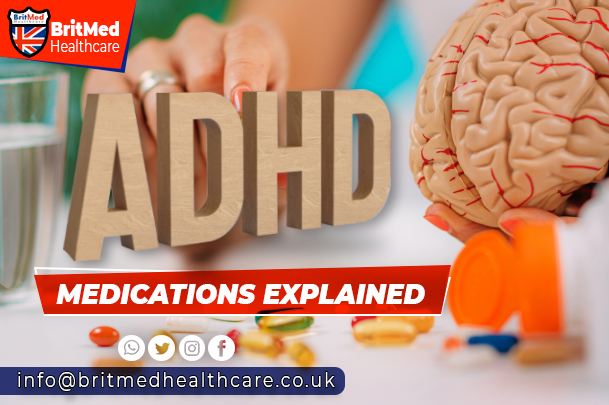ADHD Medications Explained: A Guide to Understanding Your Treatment Options
Attention Deficit Hyperactivity Disorder (ADHD) is a neurodevelopmental disorder that affects millions of people worldwide. While it can be a challenging condition to manage, medication is often a crucial part of the treatment plan. In this article, we’ll delve into the world of ADHD medications, exploring the different types, their effects, and how they work.
Types of ADHD Medications
There are three main types of ADHD medications: stimulants, non-stimulants, and alpha-2 agonists. Each type has its own unique characteristics and benefits.
Stimulants
Stimulants are the most commonly prescribed type of ADHD medication. They work by increasing the levels of certain neurotransmitters in the brain, such as dopamine and norepinephrine, which help regulate attention and impulse control. Examples of stimulant medications include:
– Ritalin (methylphenidate)
– Adderall (amphetamine and dextroamphetamine)
– Concerta (methylphenidate extended-release)
– Vyvanse (lisdexamfetamine)
Stimulants are often effective in reducing symptoms of ADHD, such as inattention, hyperactivity, and impulsivity. They can also improve focus, concentration, and organizational skills.
Non-Stimulants
Non-stimulants are a newer class of ADHD medications that don’t contain amphetamines or other stimulants. They work by affecting different neurotransmitters in the brain and can be beneficial for individuals who don’t respond to stimulants or experience side effects. Examples of non-stimulant medications include:
– Strattera (atomoxetine)
– Intuniv (guanfacine)
– Kapvay (clonidine)
Non-stimulants can help alleviate symptoms of ADHD, such as inattention and hyperactivity, and may be used as a first-line treatment or in combination with stimulants.
Alpha-2 Agonists
Alpha-2 agonists are a third type of ADHD medication that work by affecting the autonomic nervous system. They’re often used to treat ADHD symptoms in children who don’t respond to stimulants or non-stimulants. Examples of alpha-2 agonists include:
Clonidine (Catapres)
Guanfacine (Intuniv)
Alpha-2 agonists can help reduce symptoms of ADHD, such as hyperactivity and impulsivity, and may be used in combination with other medications.
How ADHD Medications Work
ADHD medications work by affecting the levels of neurotransmitters in the brain, which regulate attention, impulse control, and other cognitive functions. Stimulants increase the levels of dopamine and norepinephrine, while non-stimulants affect serotonin and other neurotransmitters. Alpha-2 agonists work by stimulating the release of certain neurotransmitters.
Starting Medication: What You Need to Know
If you’re considering starting ADHD medication, it’s essential to consult with a healthcare professional who specializes in ADHD treatment. They’ll help you determine the best medication for your needs and monitor your progress.
Before starting medication, you’ll need to provide a detailed medical history, including any allergies or sensitivities. You may also need to undergo a physical examination to rule out any underlying medical conditions that could affect your response to medication.
Common Side Effects
While ADHD medications are generally safe and effective, they can cause side effects in some individuals. Common side effects include:
– Nervousness or anxiety
– Insomnia or sleep problems
– Headaches
– Stomach upset or nausea
– Weight loss or gain
In rare cases, more serious side effects can occur. It’s essential to monitor your response to medication closely and report any unusual side effects to your healthcare provider.
Conclusion
ADHD medications can be a game-changer for individuals struggling with symptoms of attention deficit hyperactivity disorder. By understanding the different types of medications available and how they work, you can make informed decisions about your treatment plan. Remember to always consult with a healthcare professional before starting medication and to report any side effects promptly. With the right treatment and support, you can manage your ADHD symptoms and achieve greater success in all areas of your life.
References:
https://my.clevelandclinic.org/health/treatments/11766-adhd-medication
https://www.nimh.nih.gov/health/topics/attention-deficit-hyperactivity-disorder-adhd
https://www.psychiatry.org/patients-families/adhd/what-is-adhd
Websites:
Britmed Healthcare: https://britmedhealthcare.co.uk/
Nightingale Hospital: https://www.nightingalehospital.co.uk/
Top Doctors: https://www.topdoctors.co.uk/doctor/ahmed-el-missiry
You can also book, Contact us on WhatsApp 08009708017




